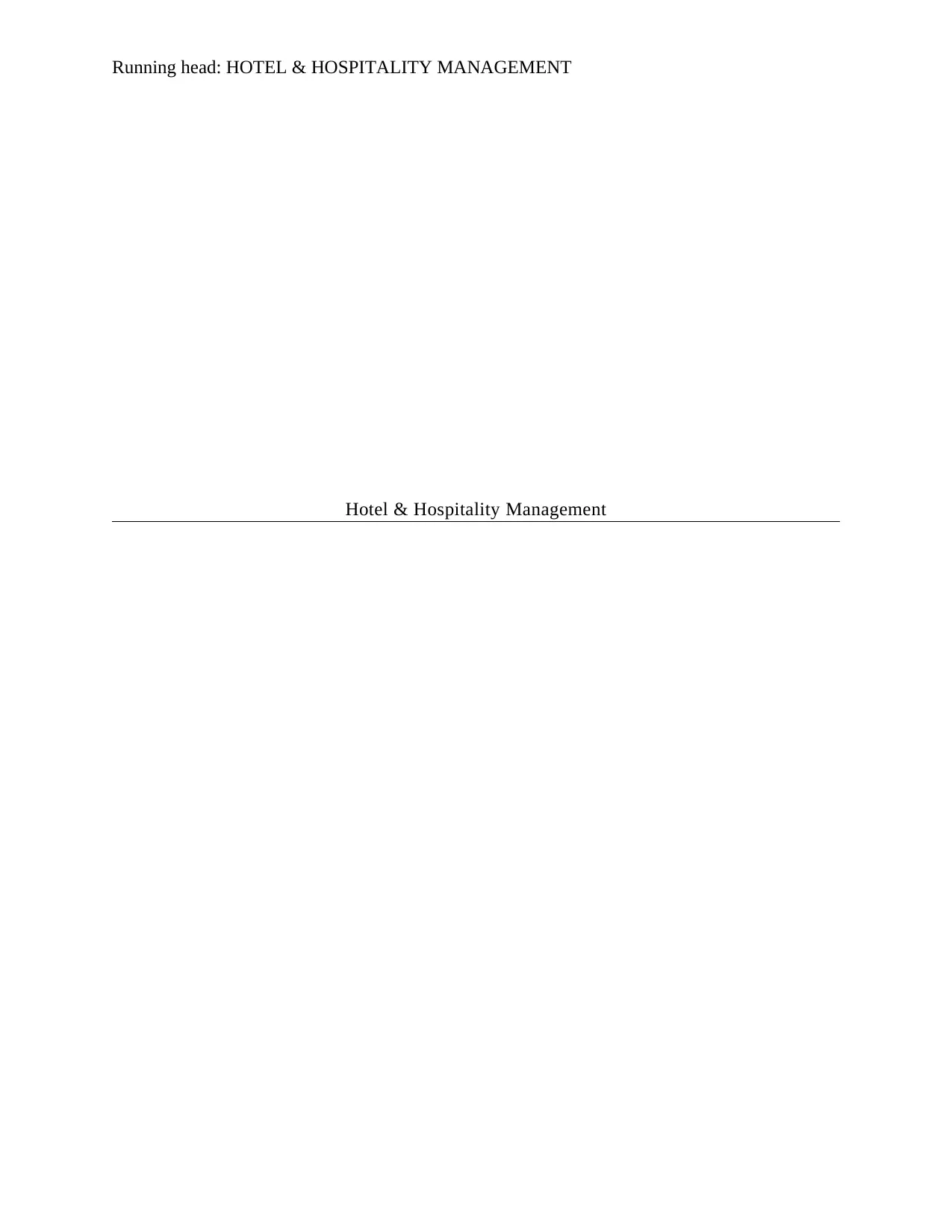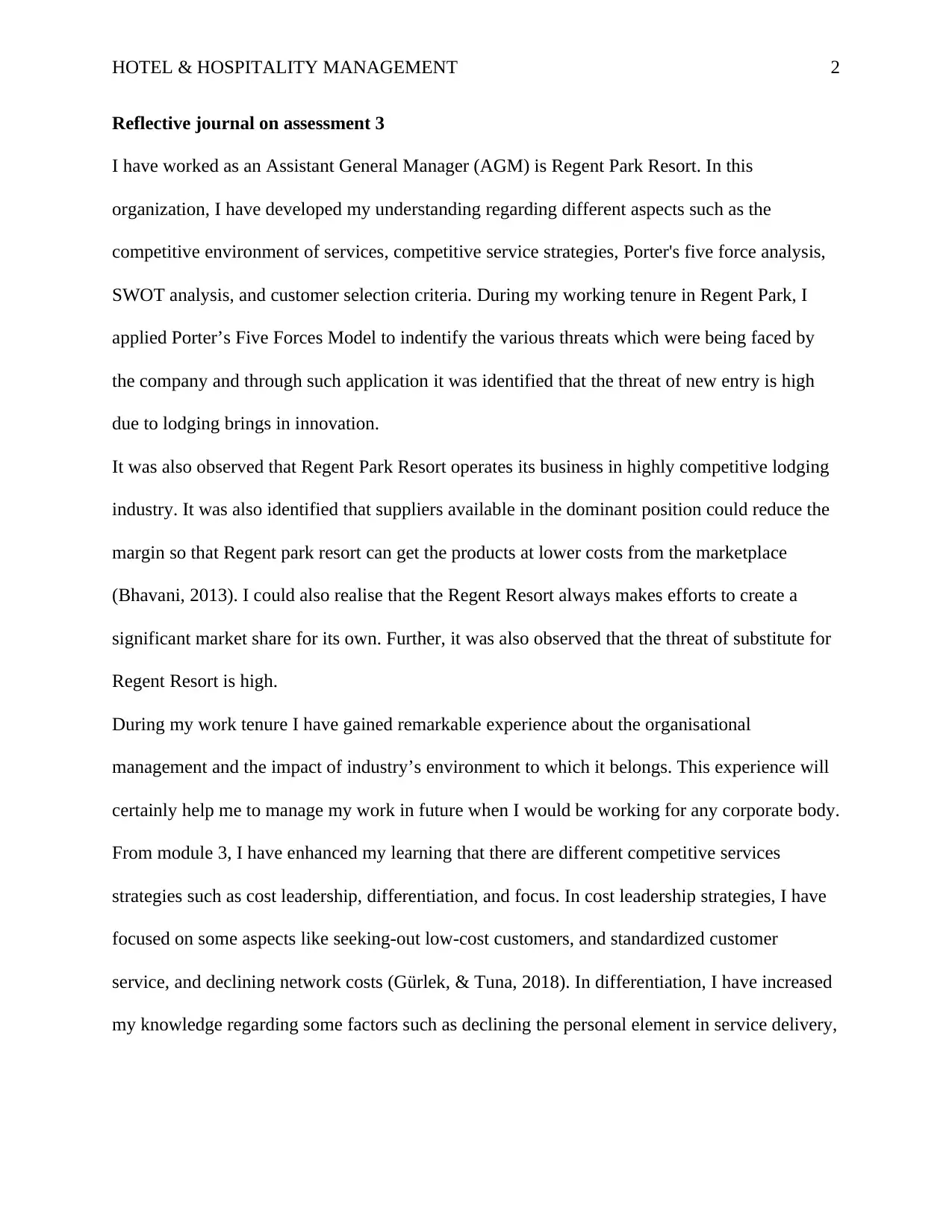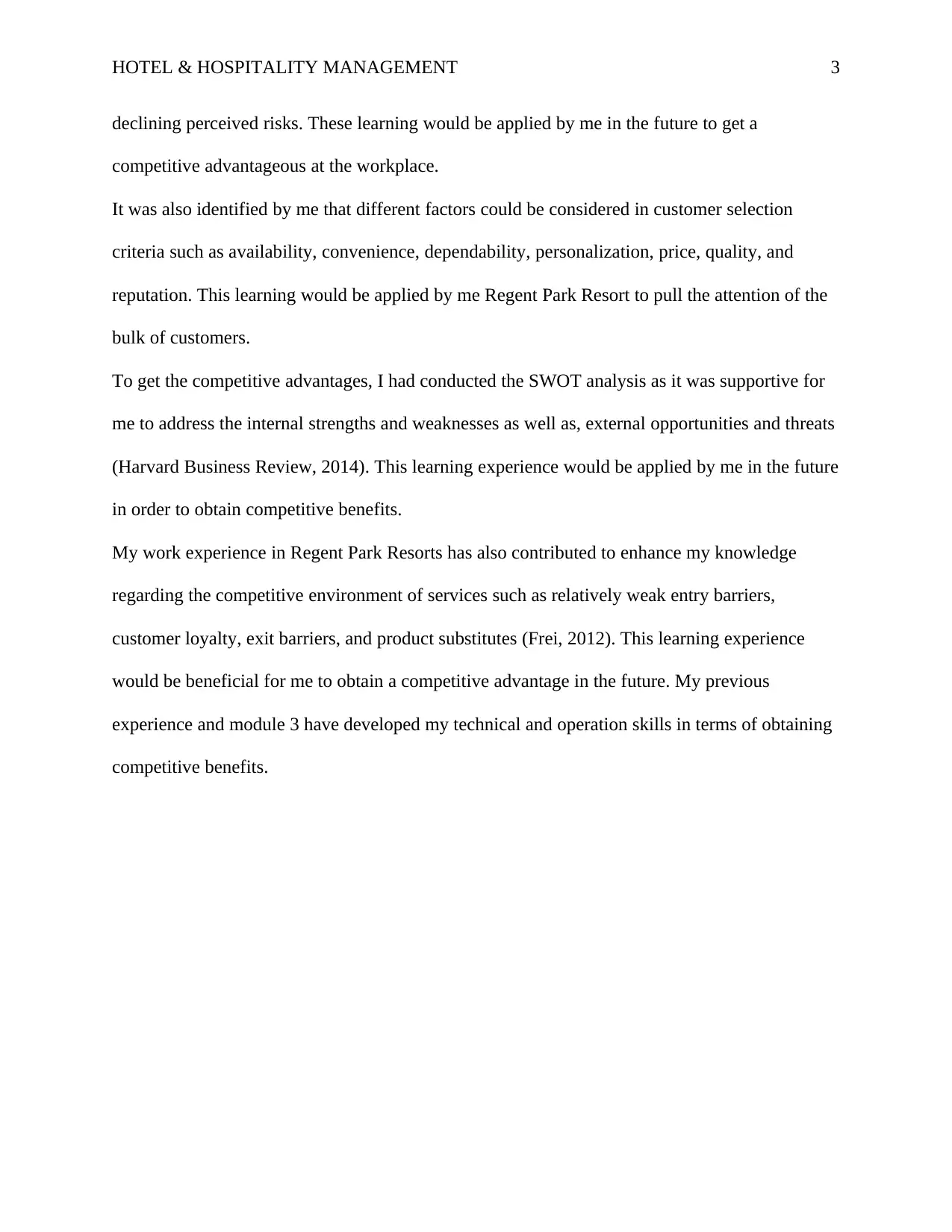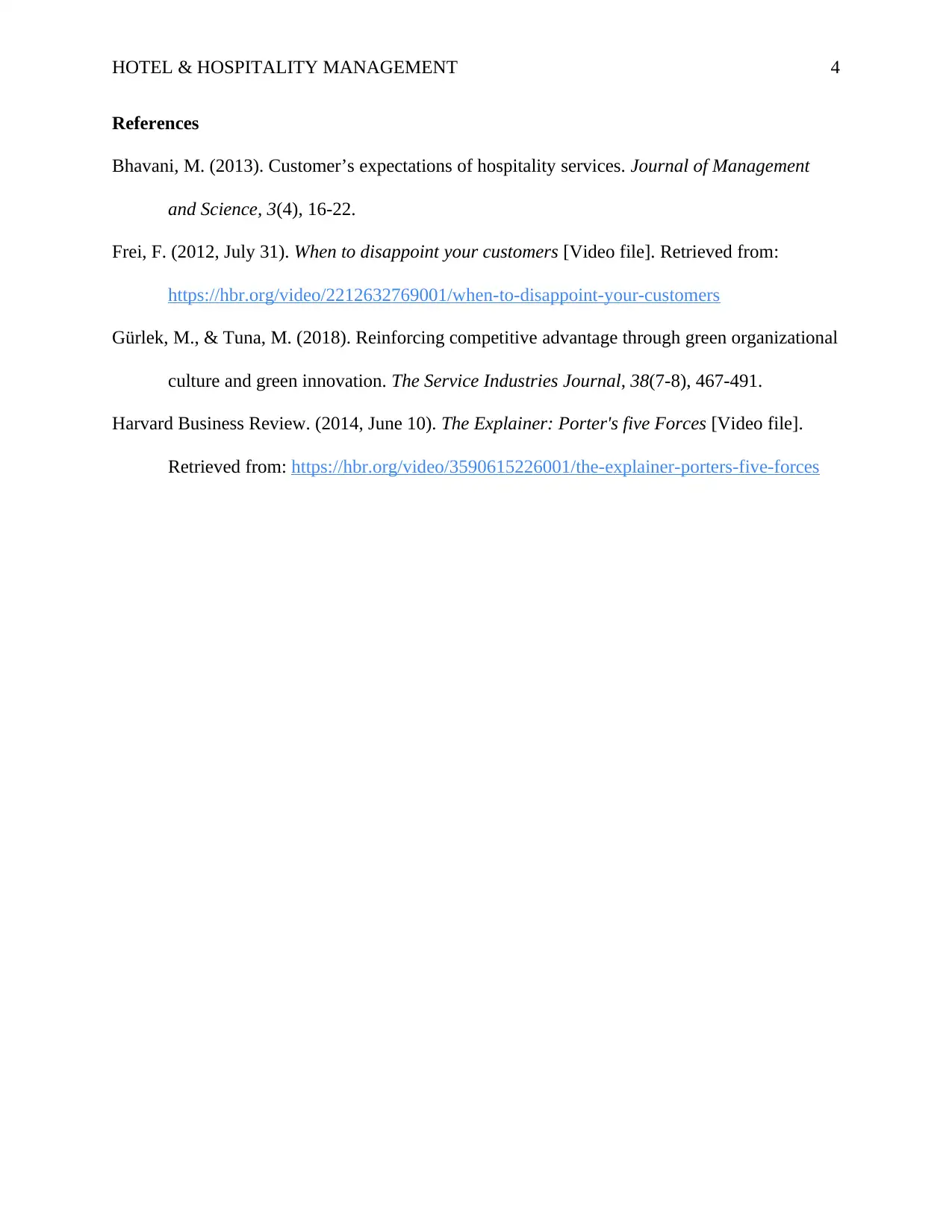Reflective Journal: Hotel & Hospitality Management, Module 3 Analysis
VerifiedAdded on 2022/12/19
|4
|678
|69
Report
AI Summary
This reflective journal analyzes the competitive environment of the hotel and hospitality industry, drawing from the author's experience as an Assistant General Manager. The journal applies Porter's Five Forces model to identify industry threats, highlighting the competitive nature of the lodging sector and the impact of suppliers and substitutes. It explores various competitive service strategies, including cost leadership and differentiation, and examines customer selection criteria. The author also discusses the application of SWOT analysis to assess internal strengths and weaknesses and external opportunities and threats. The journal emphasizes how the experience gained has enhanced technical and operational skills, providing valuable insights for future career management and competitive advantage within the hospitality sector. Relevant references are provided in APA 6th edition.
1 out of 4











![[object Object]](/_next/static/media/star-bottom.7253800d.svg)